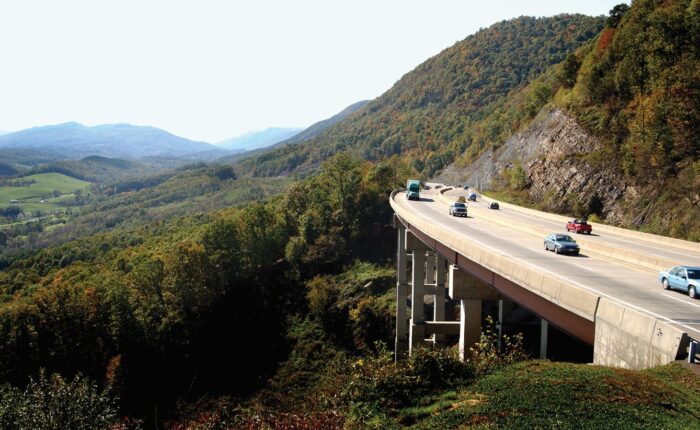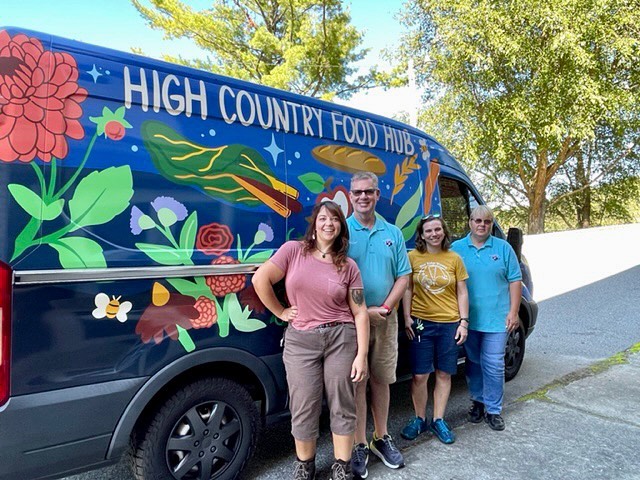
Building Appalachia’s infrastructure has been an ARC investment priority for 58 years, especially the development and maintenance of basic infrastructure systems, highway and utility access, expanding broadband, and developing sites to attract new businesses. ARC’s Area Development Program invested $92.1 million in community infrastructure Fiscal Year 2022. When thinking of those investments, however, many folks wouldn’t connect site development to something like local food.
That’s not the case in North Carolina thanks to the Blue Ridge Women in Agriculture (BRWIA), Watauga County-based nonprofit using ARC support to construct a stronger food system.
The High Country Food Hub
Since 2003, BRWIA has strengthened the High Country’s local food system by supporting producers, providing community connection and education through farm tours, and increasing local food demand at farmers markets. When they applied for ARC support in 2017, BRWIA had formed the High Country Food Hub. This online, year-round farmers’ market allows producers to enter week-to-week products and customers to order for pickup at the Food Hub or locations. While the Hub filled a crucial community need, staff at BWRIA already felt strains on their capacity. Producers lacked food storage space – specifically cold storage to preserve meat after traveling hours to and from processors – while the Hub was reaching its limit for order packaging space.
The BWRIA and Food Hub are both located in low-cost rental space offered by Watauga County Cooperative Extension Center. BWRIA’s ARC application focused on renovating two basement rooms into additional freezer space and a dry root crop storage space. As construction progressed, they realized even more cold storage was needed, so another cooler was installed in the conditioned root cellar space. The project was completed in May 2019.
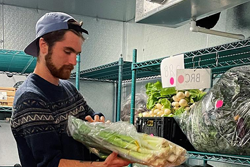
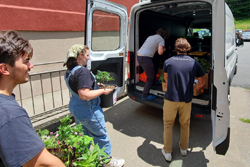
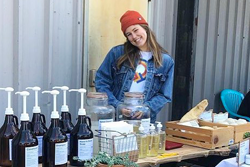
Meeting the Critical Needs During COVID-19
Unbeknownst to BWRIA, this investment proved essential for the local food economy less than a year later. The COVID-19 pandemic closed restaurants and disrupted supply chains, leaving local producers with an excess of food and residents with limited options at the grocery store. Lines went around the Cooperative Extension building as residents turned to the Food Hub for high-quality produce. As BRWIA Finance Coordinator Shannon Carroll said, “ARC providing that grant to us in that time was really important in our evolution—the additional space was a steppingstone to prepare us to respond in 2020.”
The BRWIA reorganized the spaces several times throughout that period to ultimately increase the number of producers from 75 to 85, and boost payments to those from $166,098 to $716,931. Their long-standing community relationships helped recruit new volunteers, develop new online tools to provide social-distanced service, and fulfill 3,600 orders for residents in and around Watauga County.
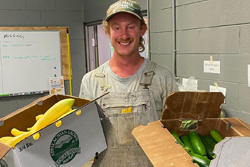
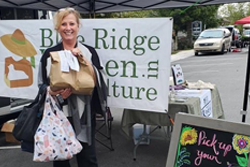

Looking Ahead
Today, High Country Food Hub is still using every square foot of their renovated space to serve more producers and customers. Local partners have provided funding for more coolers, vans, and staff time. BRWIA has also expanded partnerships like the FarmsSHARE program to purchase even more food at retail price to distribute to food insecure community members.
From 2017 to 2020, the Food Hub increased its service from 29 businesses to over 85 businesses. In 2019 the Food Hub averaged 97 orders per week, spiked to 301 orders a week in 2020, and has settled around 250 orders per week so far in 2023. Over 150 businesses have used the High Country Food Hub in its lifetime, and many of these producers have used the market opportunity provided by the hub to move to larger grocery and restaurant markets. The BWRIA is still looking for more space to expand, and, like some of their most successful producers, eventually look for more space to serve even more customers.
What advice does BRWIA offer to grantees hoping to expand their facilities, even during chaotic times? “Relationships are what it’s all about,” says Carroll. Also, “be willing to pivot and change your operations when unexpected things happen, and design your space to be as flexible as possible.”
